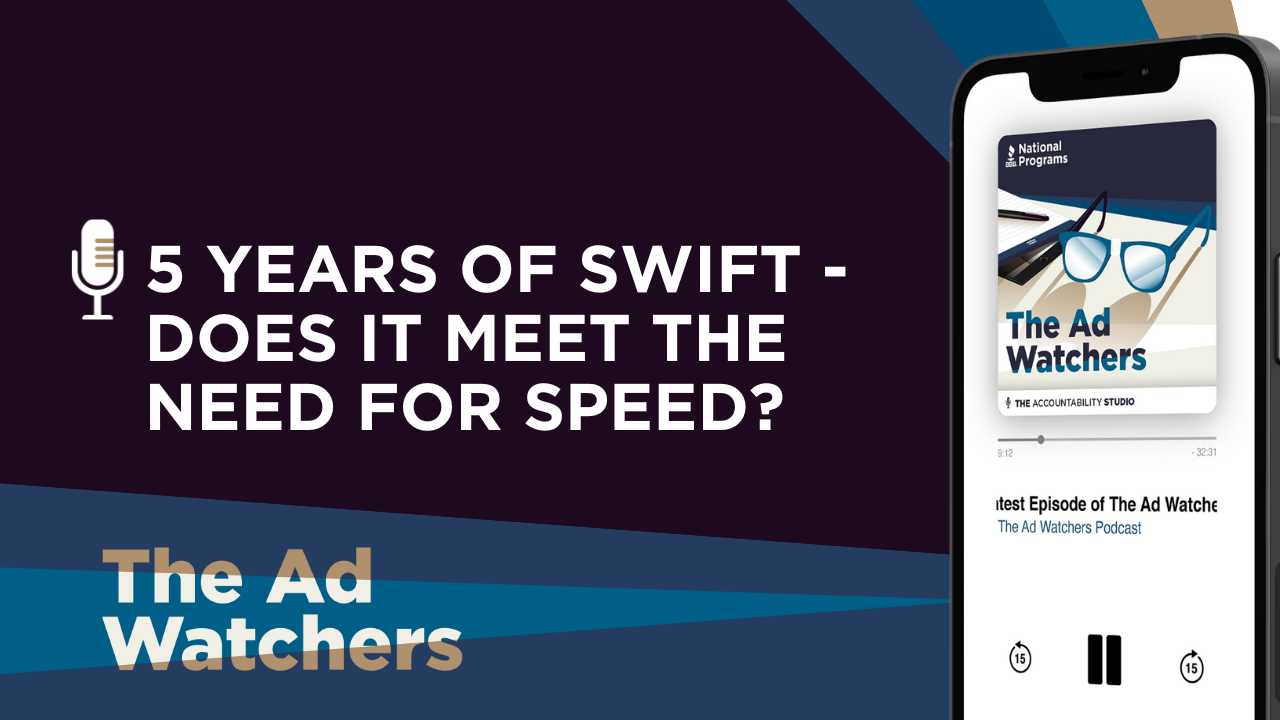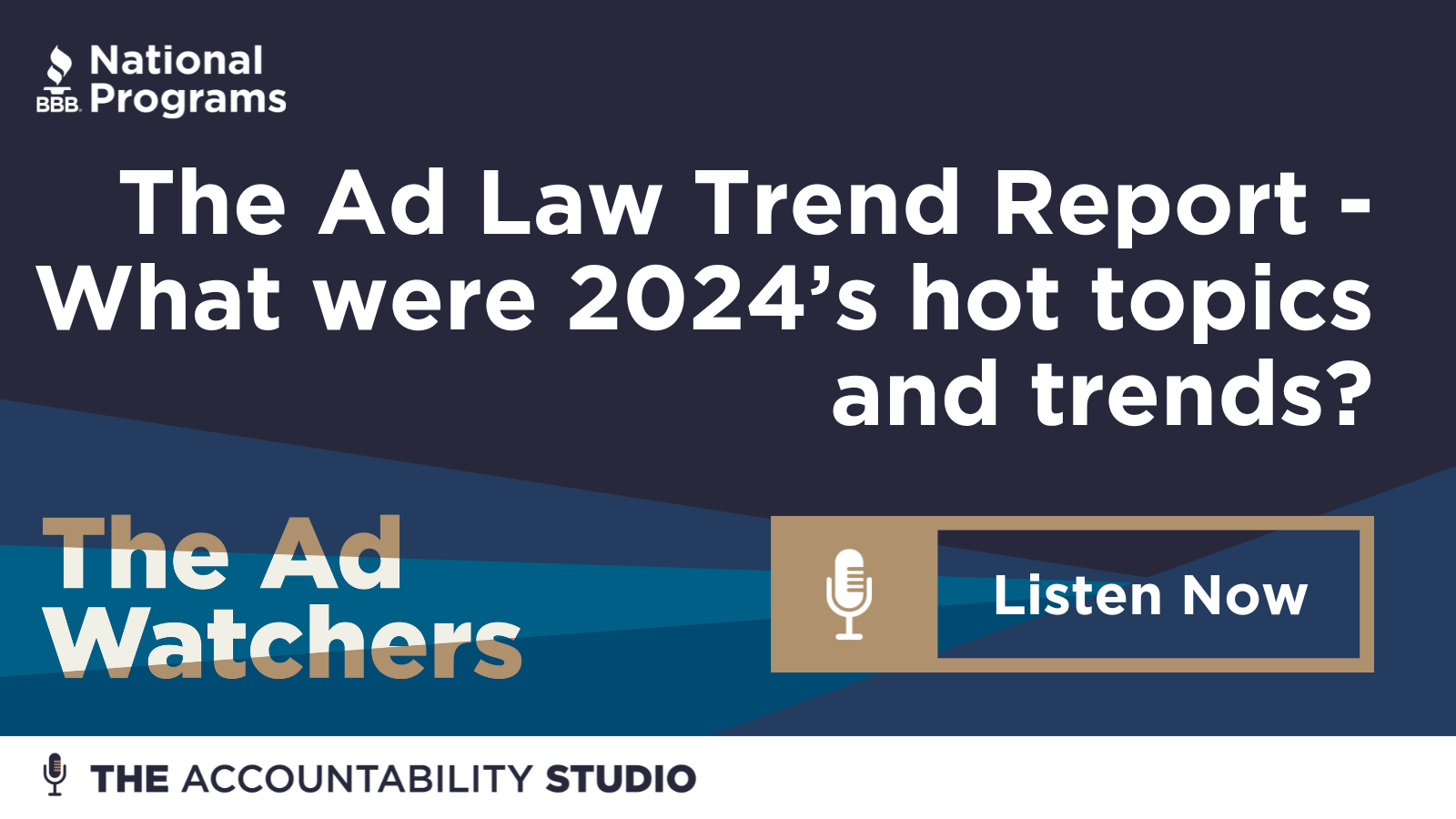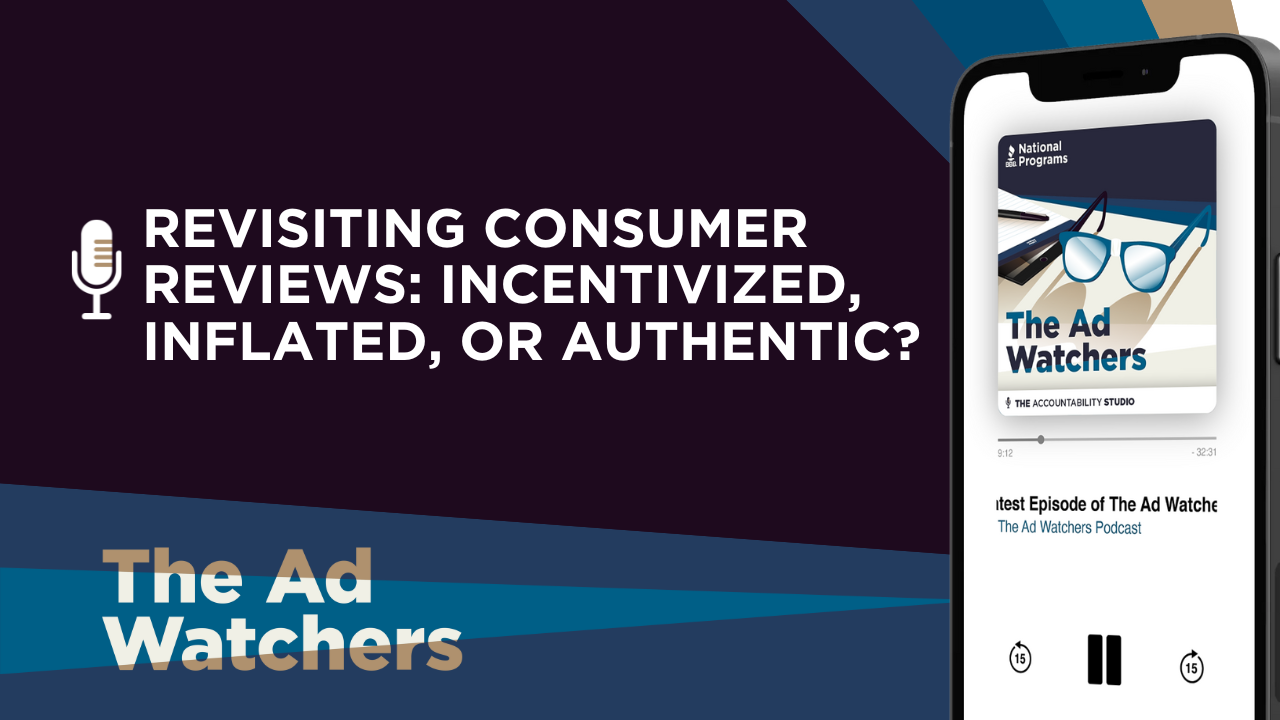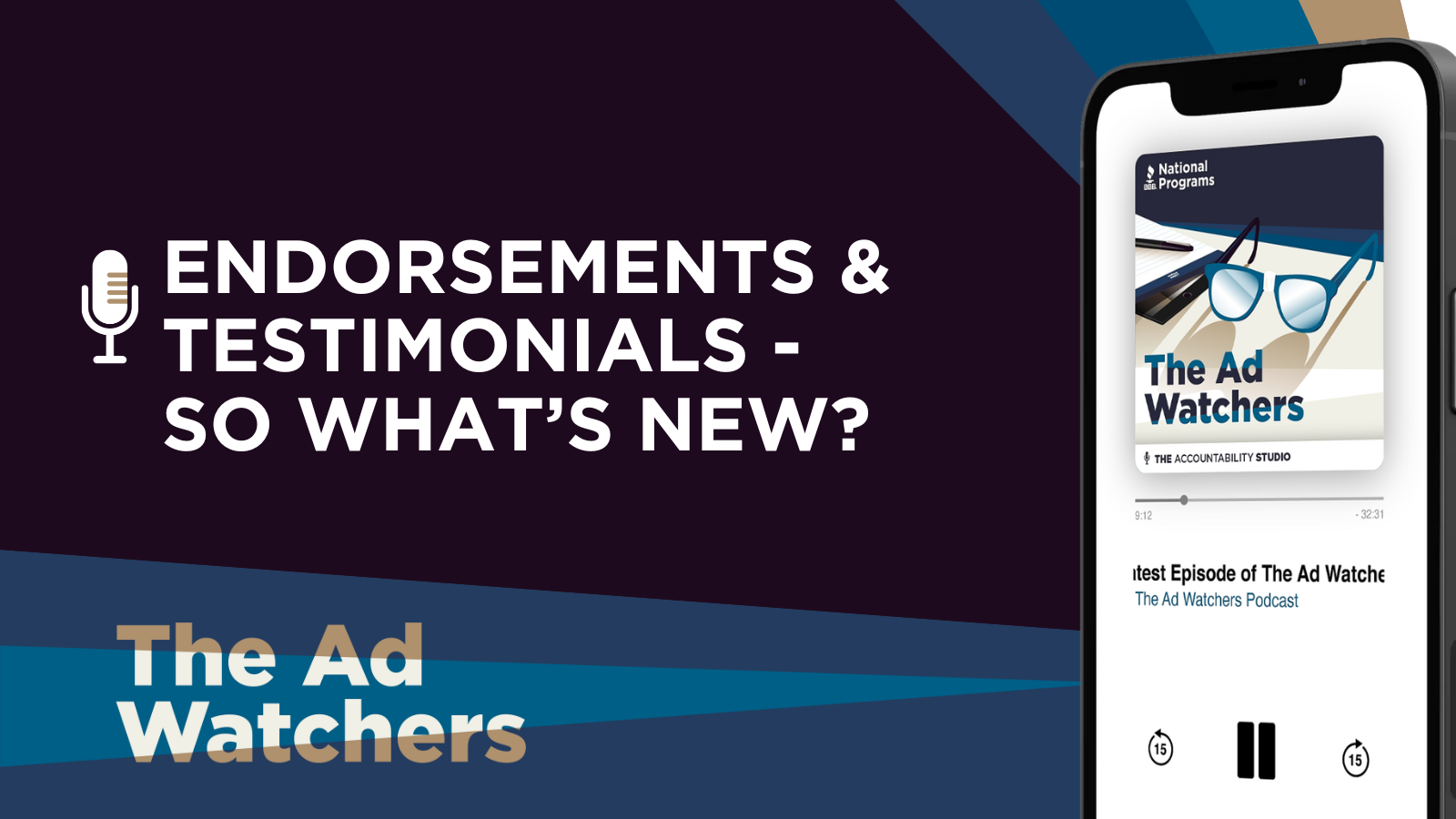Podcast (adwatchers): Play in new window | Download (Duration: 24:55 — 34.3MB) | Embed
Subscribe: Apple Podcasts | RSS
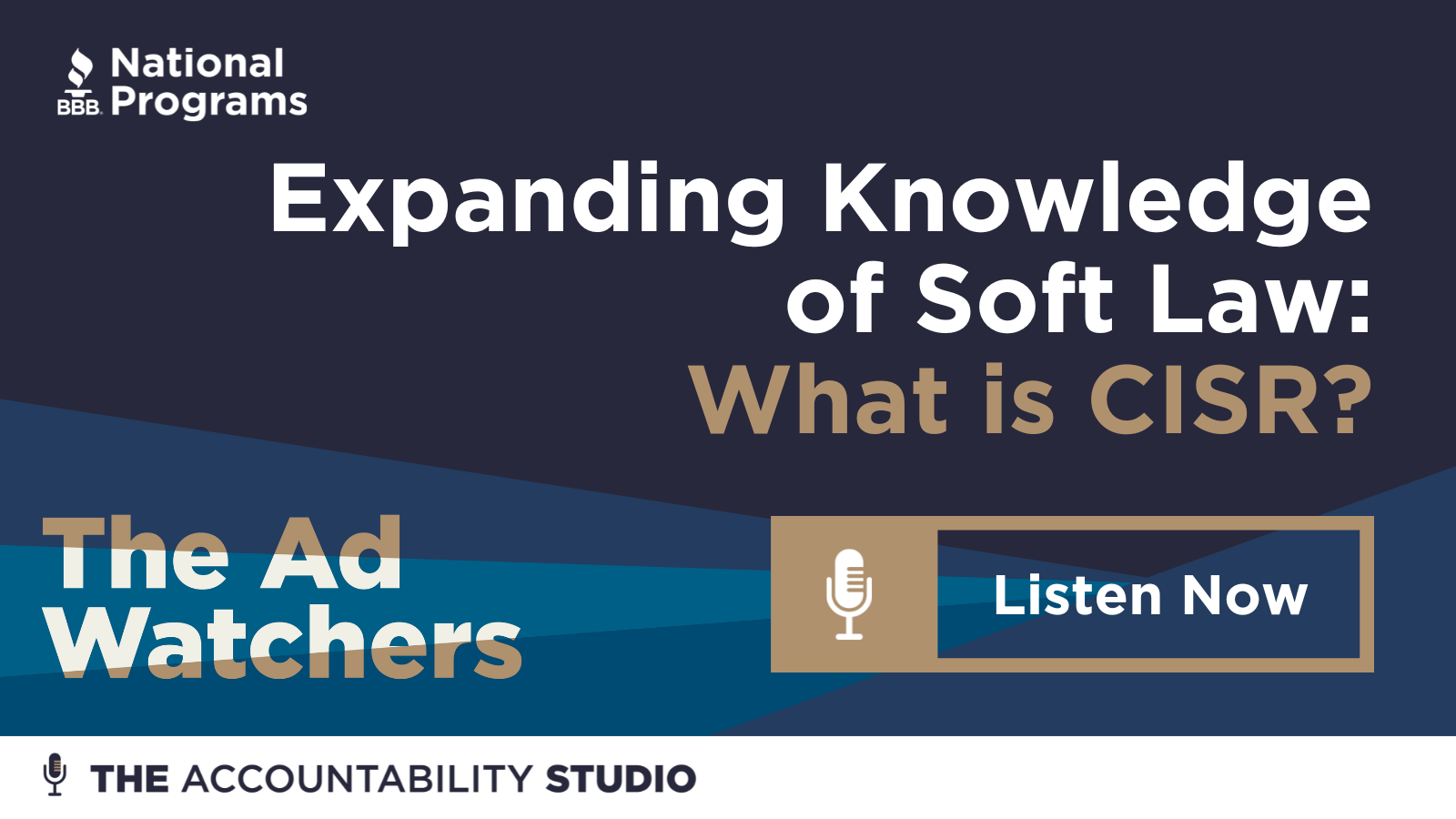
The U.S. advertising industry founded the National Advertising Division (NAD) to build consumer trust in advertising and support fair competition in the marketplace. Through this soft law model, responsible brands voluntarily discontinue or modify challenged misleading ad claims. In this era of deregulation, industry leaders can learn from the advertising industry and keep moving forward even if government does not.
In this episode of Ad Watchers, hosts Annie and Eric talk with Howard Smith, the Executive Director of the Center for Industry Self-Regulation (CISR), a charitable non-profit that is working to educate industries on the power of soft law. Howard discusses the current landscape, the call to action for business leaders to embrace industry self-regulation models for addressing systemic industry challenges, and how CISR is working on an education intuitive that will help provide a long-term solution.
Related Resources:

